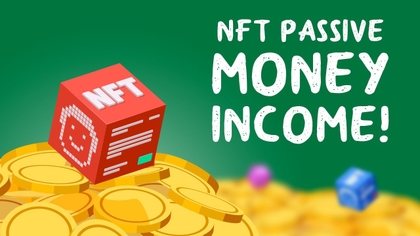The Nashville couple that took the IRS to court says that staking rewards should be seen not as income but as a creative activity.
Joshua and Jessica Jarrett took the Internal Revenue Service (IRS) in May 2021 after their Tezos (XTZ) staking rewards were taxed as income. Although the IRS agreed to pay back the couple, they refused to accept the offer. Instead, they’re hoping to take the case further and change the taxing policies on staking rewards.
The Jarretts run a node on the Proof-of-Stake (PoS) network Tezos. In 2019, they staked, or “baked” as it’s called within the Tezos ecosystem, XTZ tokens, then worth $9,407 – valued at around $34,000 at the time of writing. The IRS claimed $3,293 as income taxes, leading to the Jarretts filing a refund claim and, eventually, moving up to the court.

Did you know?
Want to get smarter & wealthier with crypto?
Subscribe - We publish new crypto explainer videos every week!
How to Make Passive Money with NFT? (Explained!)


The official complaint was filed in May 2021. The plaintiffs argued that the unclaimed stakings rewards should not have been claimed as income. The key conflict was whether unclaimed staking rewards should be classified as taxable income or created property, as the latter is not taxed until it’s sold.
The Jarretts’ position is that earning tokens by staking is similar to baking cakes or writing books, saying that taxing such creative activities “would have far-reaching and detrimental effects on taxpayers and the U.S. economy.”
On Thursday, February 3, Joshua Jarrett released an official statement regarding the case. He said that the U.S. government offered to refund the taxes on the unclaimed stakings as part of the settlement.
Jarrett said that he found the offer to have the money refunded great news at first, but later realized that it could set a precedent for more cases like his to happen if there is no court ruling.
<...> Until the case receives an official ruling from a court, there will be nothing to prevent the IRS from challenging me again on this issue. I need a better answer. So I refused the government’s offer to pay me a refund.
Based on Jarrett’s statement, it’s clear that the plaintiffs are aiming for a policy change. Since the taxing criteria do not specifically cover unclaimed stakings rewards, other token stakers could wind up in a similar situation. The goal now is to have clear taxation standards on staking and block rewards for Proof-of-Stake and Proof-of-Work systems.
If the plaintiffs succeed in taking the case further, it could lead to an overhaul of the unclaimed and unsold stakings taxation, as crypto and token staking gain more traction in the U.S.
Yesterday, BitDegree reported that the IRS agreed to refund the Jarretts the total amount claimed as an income tax, “with statutory interest as provided by the law.”






















